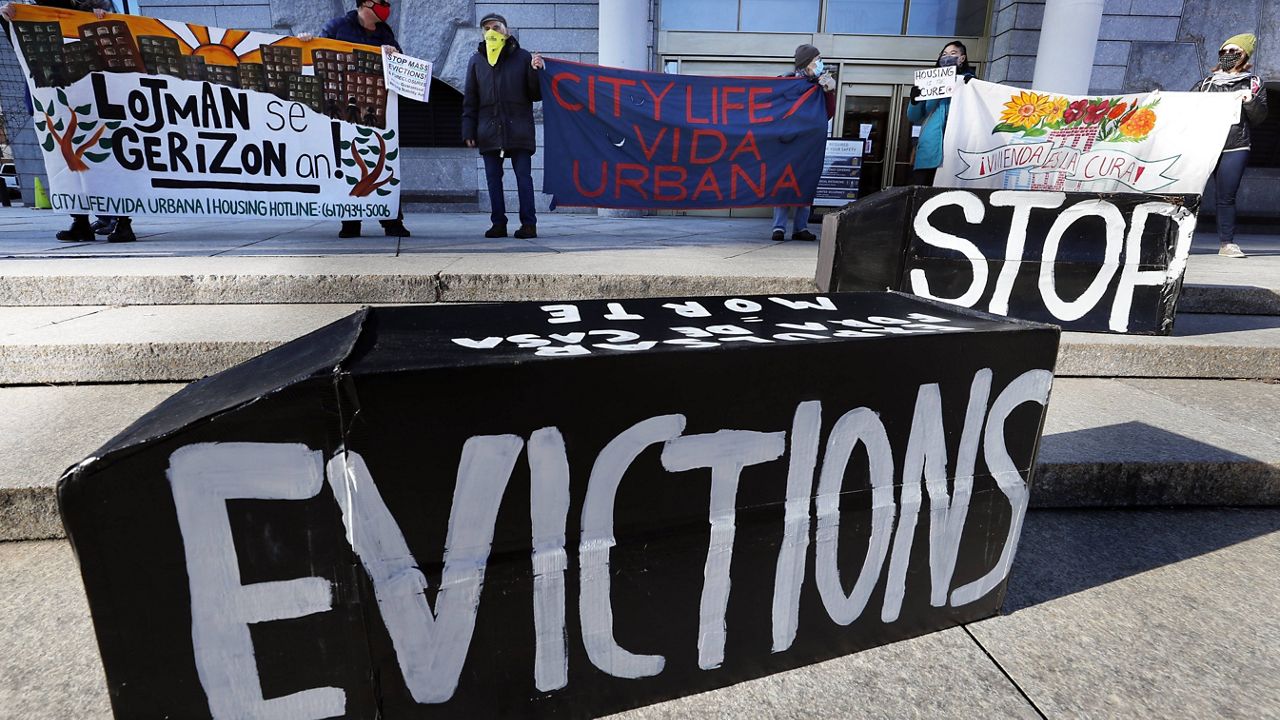While the pace is picking up, state and local governments are still doling out rental aid too slowly, leaving many Americans vulnerable to eviction, the Biden administration said Wednesday.
What You Need To Know
- While the pace is picking up, state and local governments are still doling out rental aid too slowly, leaving many Americans vulnerable to eviction, the Biden administration said Wednesday
- Through July 31, just $5.1 billion of the $46.5 billion Emergency Rental Assistance Program had been distributed, according to the Treasury Department
- One of the biggest challenges in paying out the rental assistance has been processing delays
- The Treasury Department announced a series of new policies Wednesday aimed at cutting the red tape and speeding up the process
Through July 31, just $5.1 billion of the $46.5 billion Emergency Rental Assistance Program — less than 11% — had been distributed by state and local governments, according to the Treasury Department, which oversees the program.
Agencies disbursed $1.7 billion to 340,000 households in July alone, serving 15% more homes than in June and more than double the number of households in May.
The Emergency Rental Assistance Program aims to prevent tenants struggling financially because of the COVID-19 pandemic from being evicted. Two federal pandemic relief packages passed over the last year are funding the initiative.
While the ERA is a federal program, states are responsible for delivering the aid to those in need.
“Too many grantees have yet to demonstrate sufficient progress in getting assistance to struggling tenants and landlords,” the Treasury Department said in a news release Wednesday.
The Centers for Disease Control and Prevention ordered a moratorium on evictions in September 2020, which President Joe Biden has extended several times. After briefly letting the moratorium lapse, Biden reinstated it earlier this month through Oct. 2 to allow more time for the rental assistance to be distributed.
The Supreme Court is expected to rule in the coming days on the latest extension.
The Treasury Department is warning states that are unwilling or unable to quickly deliver the aid that they will be at risk of having the funding reallocated to other states after September.
One of the biggest challenges in paying out the rental assistance has been processing delays. The Treasury Department announced a series of new policies Wednesday aimed at cutting the red tape and speeding up the process. Among them is allowing applicants to self-attest their eligibility, including their income and risk of homelessness or housing instability. Agencies can then rely solely on the self-attestation when making their decisions, the Treasury Department said.
Some local government officials have said in recent weeks they’re concerned that loosening the rules could lead to errors, fraud or accusations that they squandered federal money.
“We want to be as easy as possible for getting funds out to renters nd landlords, but we also want to be sure we’re good stewards of taxpayer money and not open ourselves up to fraud,” Chris Winston of SC Housing told the Index-Journal in Greenwood, South Carolina.
The White House has said the potential waves of evictions far outweigh those risks.



